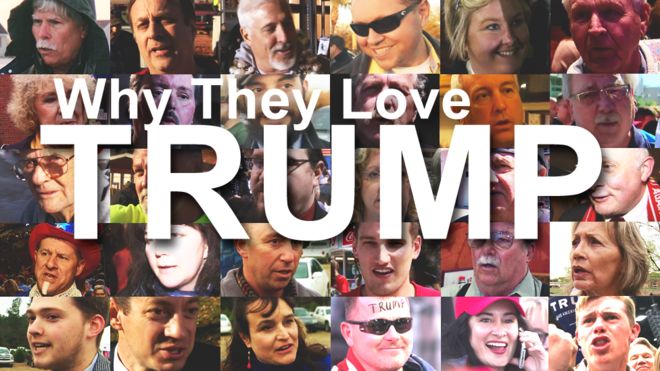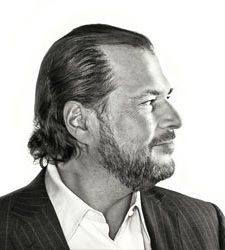 Why do rural blue color workers and rural college educated people love Trump?
Why do rural blue color workers and rural college educated people love Trump?
The Guardian’s Thomas Frank, pointed out on March 7, 2016: “..what motivates the supporters of Republican presidential candidate Donald Trump? I call it a “mystery” because the working-class white people who make up the bulk of Trump’s fan base show up in amazing numbers for the candidate, filling stadiums and airport hangars, but their views, by and large, do not appear in our prestige newspapers. On their opinion pages, these publications take care to represent demographic categories of nearly every kind, but “blue-collar” is one they persistently overlook.” Full Article
The Atlantic Monthly received letters from a range of people who support Trump for president in August 2015. The reasons they quote are similar:
A self proclaimed Liberal who voted for Obama wrote: “Rather, I genuinely believe that Trump feels the need to fight for the country he loves. There once was a time when people could actually feel proud to be Americans, and Trump comes from a generation that experienced that feeling. Now, many are embarrassed to be associated with this country. Jobs are being outsourced with reckless abandon and this country is literally being hollowed out. Economic statistics do no justice to this reality, and the average American knows this to be true.”
An undecided voter writes: “..the preeminence of political correctness among the culture class indicates a momentous shift away from formerly prominent middle-class cultural values and towards something entirely different. Even if Donald Trump were to accomplish little in his presidency, I think there is a hope that were he president, he could in some way alter that prevailing Washington/media culture and set a new cultural tone. Many would probably question why, of all people, a decadent, rude, and pompous billionaire should be trusted to meddle with American culture? I think it comes down to a perception that America has already drowned in a post-modernist nightmare of moral relativism, from which extreme political correctness and protest culture stem. Trump, on the other hand, is all absolutes.” Full Article
Kathy Kramer shared with Kevin Drum in an interview for Mother Jones, November 8, 2016, that her political science study showed this:
“What I was hearing was this general sense of being on the short end of the stick. Rural people felt like they not getting their fair share. That feeling is primarily composed of three things. First, people felt that they were not getting their fair share of decision-making power….Second, people would complain that they weren’t getting their fair share of stuff….And third, people felt that they weren’t getting respect….So it’s all three of these things — the power, the money, the respect. People are feeling like they’re not getting their fair share of any of that.” Full Article
So let’s take a close look and let’s see if what they feel is true.
The Brookings Institute states that Republican States have more entrenched poverty than Democratic States. Republican districts have more poor residents overall: 25.1 million poor people lived in red districts in 2010-14 compared with 22.7 million in blue districts.
Between 2000 and 2010-14, the poor population grew faster in red districts than blue. The number of people living below the poverty line (e.g., $24,230 for a family of four in 2014) in Republican districts climbed by 49 percent between 2000 and 2010-14 compared with a 33 percent increase in Democratic districts. As a result, Republican districts accounted for 60 percent of the increase in the nation’s poor population during that time. At the same time, poverty rates rose by similar margins in both red and blue districts (3.3 and 3.2 percentage points, respectively).
Table 1. Congressional Districts with the Fastest Growth in Poor Population, 2000 to 2010-14
| Party | State | District | Representative | Percentage Change in Poor Population | Share of Poor in Suburbs | |
| R | NV | 3 | Heck, Joseph J. | 268.4% | 51.0% | |
| R | GA | 7 | Woodall, Rob | 223.6% | 100.0% | |
| D | GA | 13 | Scott, David | 213.1% | 100.0% | |
| R | AZ | 8 | Franks, Trent | 188.5% | 93.5% | |
| R | AZ | 5 | Salmon, Matt | 177.7% | 50.4% |
Source: Brookings Institution analysis of decennial census and American Community Survey data
Hunger in Rural Communities is higher than Urban
According to the United States Department of Agriculture report, Household Food Security in the United States in 2014, 14% of U.S. households were food insecure at least some time during the year. The prevalence of food insecurity was higher in rural areas than metropolitan areas.

Source: Household Food Security in the United States in 2015, page 14.
The Digital Divide created by lack of Internet Access
55 percent of people living in rural areas have access to the speeds that currently qualify as broadband, while 94 percent of the urban population does. As of 2015, 74 percent of households in urban areas of the U.S. had residential broadband connections, compared with only 64 percent of rural households. This gap has persisted over time. Research reveals that broadband adoption can help improve the economy in these rural areas (including increasing income, lowering unemployment rates and creating jobs). In addition, we know that roughly 40 percent of the rural-urban adoption gap is because rural areas don't have the same level of broadband access. This is because large providers are not interested in serving these communities and in some instances have refused Federal Subsidies to get rural communities connected.
Source: http://phys.org/news/2016-06-technology-rural-broadband-access-problem.html#jCp
Suicides in Rural Areas are double of those than in Cities
A study by the JAMA states that Suicide is a serious public health problem. For youths between the ages of 10 and 24 years, suicide was the third leading cause of death in 2010 behind only unintentional injuries and homicide.1 Males are at higher risk, accounting for 81% of suicide deaths in the 10- to 24-year age group. Suicide risk increases with age, with 6% occurring in individuals younger than 15 years, 34% in those between 15 and 19 years, and 60% in young adults aged 20 to 24 years.1
Rates of suicide also vary by rural-urban residence, with higher rates in rural compared with urban areas. Suicide rates among rural men were higher than those of urban men, with rural-urban differences widening over time. Higher rates of suicide attempts have also been reported8 among rural compared with urban adolescents. The studies conclusion stated Although low population density per se may be operative, efforts to improve access to mental health services and offer social support at the local level could narrow the gap in risk for youths in rural as opposed to urban settings. Additional study is warranted and of potentially great public health significance. Full Article
Rural communities as our research shows are genuinely struggling with problems that are not adequately addressed by neither the major political parties nor the major media outlets. It seems that one of Trump’s appeal is that at least give this audience the feeling they are seen and heard. While this does not qualify him to do anything about the issues he has succeeded in mobilizing millions of Americans to vote for him to “stick it to the elite.” Rural people are angry for having been ignored as their lives have grown ever more depressing. Trump has pulled them out of this feeling of helplessness and he has unleashed their anger.
Next we will investigate why a supposedly educated people would vote for Trump.
